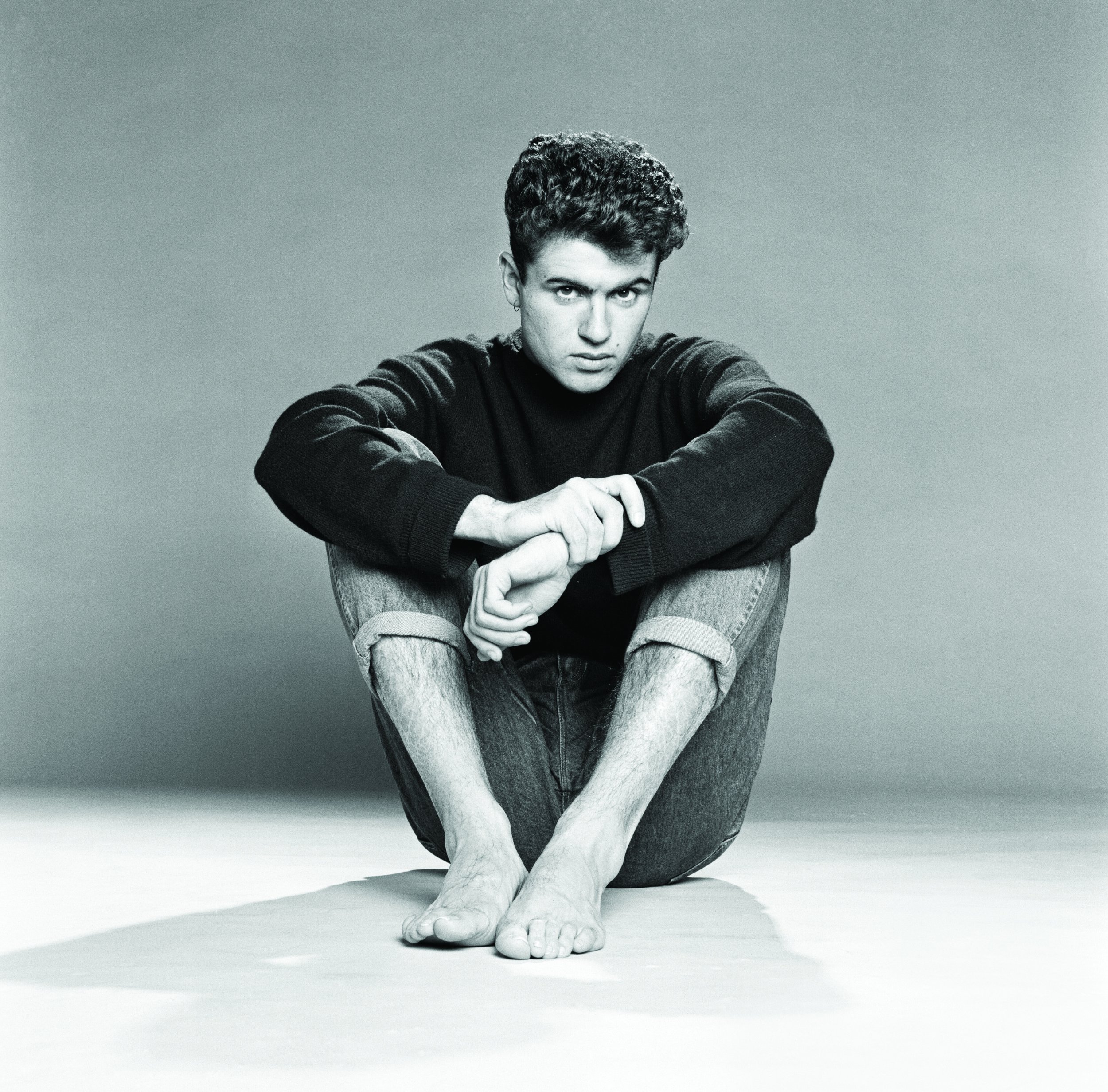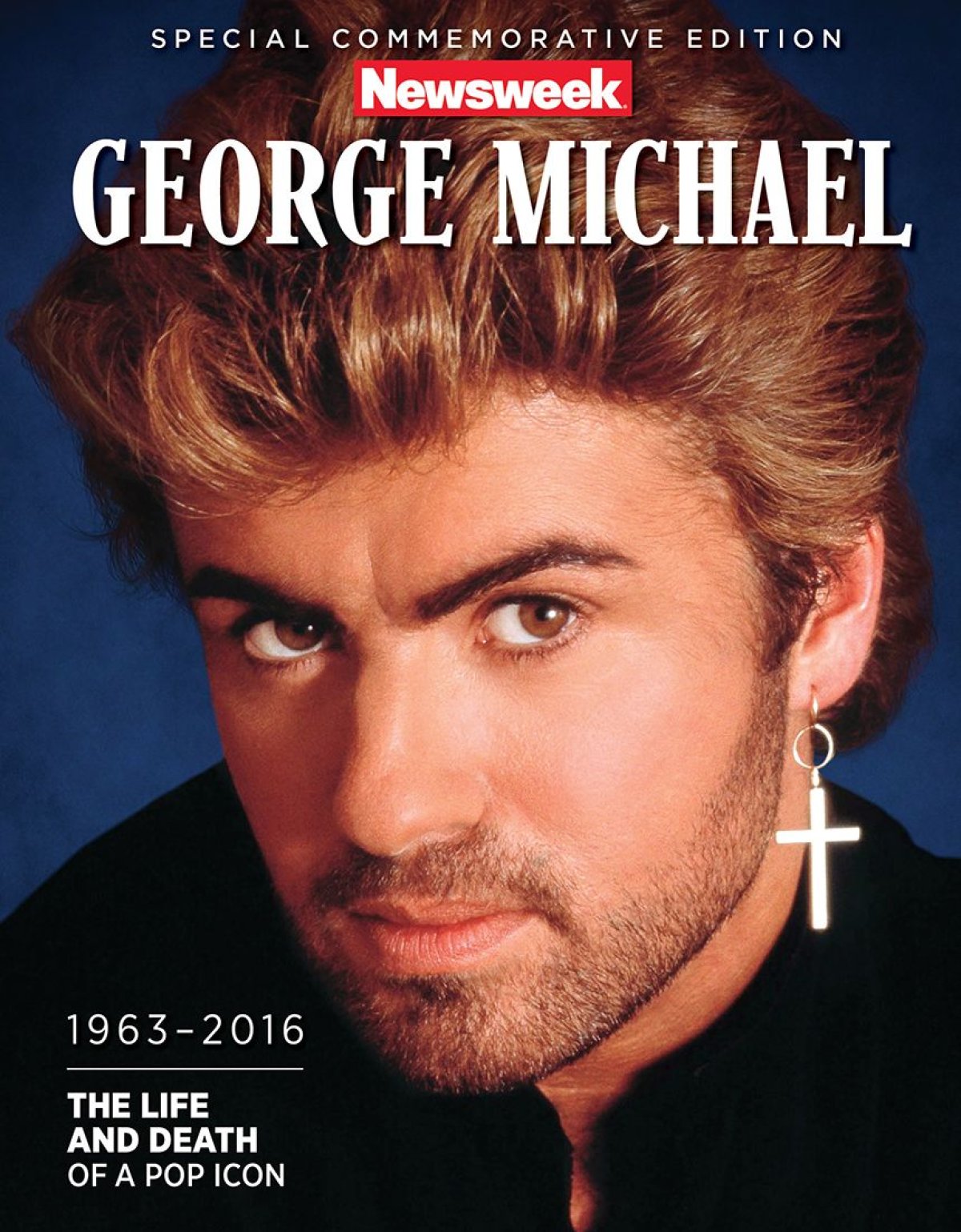
This article, and others about the life and death of the pop icon George Michael, are featured in Newsweek's Special Commemorative Edition: George Michael.
On June 25, 1963, Georgios Kyriacos Panayiotou was born in Edgeware, North London, a district known for its suburban pace and picturesque segments of elevated woodlands. At the time of his birth, Georgios's Greek Cypriot immigrant parents were finally on the up and up in England after leaving behind an impoverished life sardined in seven-to-a-room refugee camps for citizens of the island nation constantly in conflict between Greek and Turkish interests. While he revered the unyielding work ethic demonstrated by his parents on a daily basis, the boy who would later be known as George Michael dreamed not of a traditional life of labor, but rather a legacy of global fame.
"Work was their religion," George Michael said of his mother and father in a December 2005 interview with The Independent. "They were both working so hard to get us where they wanted us to be, but that made them authoritarian." As they continued to toil their way out of poverty, the family lived in a flat above a London laundromat. Georgios's mother, Lesley Angold Panayiotou, was an English dancer, likely the genetic forerunner of the jitterbugging moves fans around the world would one day associate with her son. To support Georgios and his sisters, Melanie and Yioda, Lesley worked three jobs; and as George Michael recalled to The Independent, her least favorite was at a chip shop because "she could never get the smell of fish out of her hair or off her skin, no matter how hard she scrubbed."
As a restaurateur in North London, Kyriacos Panayiotou—who changed his name to Jack Panos upon arriving in England in the 1950s— approached fatherhood conservatively, always erring on the side of caution when it came to his son's career prospects. After moving to Kingsbury, London, where Georgios would spend many of the formative years of his life, Jack again relocated the family, this time to Radlett, Hertfordshire. There, as Georgios got himself acquainted at Bushey Meads School in the bordering town of Bushey, he further discovered his desire to become a successful musician. But before he could fully ignite his spark for musical expression, Jack attempted to extinguish it with his signature pragmatism.
Because Georgios was born into a more comfortable life in England where he didn't have to labor intensively to stay above the poverty line, his father believed the dream of being a famous musician was a risk at best and a waste at worst. And while his father's dismissiveness would serve as a source of strife during those pivotal teenage years, the older, more reflective Georgios recognized Jack's blunt opinion as masked paternal concern. As he told The Independent, "My dad was trying to protect me from what he saw as a false dream."
Still, the teenage Georgios remained undaunted. Instead of focusing on his schoolwork like most others his age, he began busking on the London Underground, honing his vocal chops by singing songs such as "39" by Queen. Georgios's first paying gigs in the music industry were as a DJ at local clubs and schools around Bushey and the nearby suburbs of Stanmore and Watford. Even though the DJ work at least guaranteed a small income, Georgios wanted to be the one singing on the hit records, not the person responsible for playing them. He then decided to start chasing that longshot of a dream with someone who shared the same ambitions, a fellow Bushey Meads School student by the name of Andrew Ridgeley.
Now allied with Ridgeley, Georgios was ready for his first real taste of crafting and performing music for a willing audience. The two enlisted the help of Ridgeley's brother Paul and two other local musicians, Andrew Leaver and David Mortimer, to form a ska band called The Executive. But after playing only a handful of shows, The Executive disbanded, leaving Georgios and Ridgeley to plan their next move. The two were able to recover quickly, though, and in 1981, they decided to dub themselves Wham! and perform as a duo. Between their musical prowess, good looks and natural chemistry, Wham! had undeniable potential that would be recognized one year later in 1982 by Innervision Records, who signed the duo to their first record deal. Their debut album, Fantastic, was released on July 9, 1983, and climbed to the No. 1 position on the U.K. Albums Chart soon after. Georgios was now George Michael, and despite his father's doubts, he was singing his way straight into superstardom.
This article, written by Assistant Editor Trevor Courneen, was excerpted from Newsweek's Special Commemorative Edition: George Michael. For more on the life and legacy of the groundbreaking superstar, pick up a copy today.

Uncommon Knowledge
Newsweek is committed to challenging conventional wisdom and finding connections in the search for common ground.
Newsweek is committed to challenging conventional wisdom and finding connections in the search for common ground.
About the writer
To read how Newsweek uses AI as a newsroom tool, Click here.








